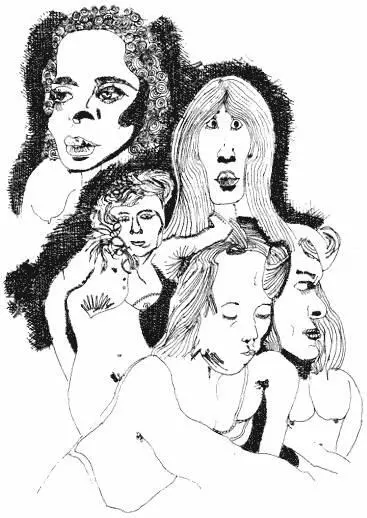William Vollmann - Butterfly Stories
Здесь есть возможность читать онлайн «William Vollmann - Butterfly Stories» весь текст электронной книги совершенно бесплатно (целиком полную версию без сокращений). В некоторых случаях можно слушать аудио, скачать через торрент в формате fb2 и присутствует краткое содержание. Год выпуска: 1994, ISBN: 1994, Издательство: Grove Press, Жанр: Современная проза, на английском языке. Описание произведения, (предисловие) а так же отзывы посетителей доступны на портале библиотеки ЛибКат.
- Название:Butterfly Stories
- Автор:
- Издательство:Grove Press
- Жанр:
- Год:1994
- ISBN:9780802134004
- Рейтинг книги:5 / 5. Голосов: 1
-
Избранное:Добавить в избранное
- Отзывы:
-
Ваша оценка:
- 100
- 1
- 2
- 3
- 4
- 5
Butterfly Stories: краткое содержание, описание и аннотация
Предлагаем к чтению аннотацию, описание, краткое содержание или предисловие (зависит от того, что написал сам автор книги «Butterfly Stories»). Если вы не нашли необходимую информацию о книге — напишите в комментариях, мы постараемся отыскать её.
Butterfly Stories — читать онлайн бесплатно полную книгу (весь текст) целиком
Ниже представлен текст книги, разбитый по страницам. Система сохранения места последней прочитанной страницы, позволяет с удобством читать онлайн бесплатно книгу «Butterfly Stories», без необходимости каждый раз заново искать на чём Вы остановились. Поставьте закладку, и сможете в любой момент перейти на страницу, на которой закончили чтение.
Интервал:
Закладка:
I can see you know how to do business, the husband flattered him.
Sir, I do my best.
You think everything's OK with her?
I think maybe I send a letter soon.
He'd heard that every now and then, capriciously, the government cracked down, and the prostitutes were put in a place where there wasn't enough to eat.
His worry about her was no less than anguish; he loved her, his dear new wife as narrow-waisted as a fresh-tied bundle of light-green rice. .
After two weeks he called Sien, who said: I learn nothing sir no news of her I try again maybe one week.
(Sien, like Ned, was only doing his job; the husband reminded himself of this. Sien was doing his job as the clerks did theirs in the post office on that street in Bangkok where gems and fossils and hill tribe silverwork were sold, the placid postal clerks stamping rows and rows of little papers, and on the walls white reliefs of unknown grand gentlemen, serration-bordered like stamps. They'd done their jobs, too.)
Finally he got some post-Hungarian magazine to send him to the Arctic for a couple of weeks — lots of work and morose nose-blowing and maybe eight hundred bucks at the end of it; well, her passport out of Cambodia alone would cost two grand so he'd better start somewhere. - It's the recession, you see, the editor said. We just don't have the advertising. All the magazines are skinnier these days.
The ice's bumpy snow massaged his feet through the kamik-soles with tiny tingles, the orange sun one sun's length above the blue. Dogs wagged tails over old polar bear tracks. The low cliff-sweep of Signal Hill was already waiting for the darkness to get darker, the hill-edge closer to night than the sky, everything going storm-blue or death-blue; and the lights of the village only increased the dreariness. Thinking about his new wife, he had the usual feeling of anxious despair; hour by hour the bond between them was dissolving. She was getting AIDS. She was moving to another disco. She was in the re-education camp. She was giving up prostitution. She would never give up prostitution. She was forgetting him. The way he should have felt was exultant, because the eight hundred dollars was the first step back to her. Instead, it seemed to him that everywhere he went just got him more lost.
There was a children's Halloween party. Probably the post-Hungarians would want him to cover it. But who knew what they wanted? Children were always good for a paragraph. Honking their noisemakers, faces corpsened with pale paint, wearing tinsel on their skeleton-heads, they dashed about, their parents lurking shy. Paper and plastic pumpkins hung orange and absurd from the ceiling; what the hell were pumpkins doing in the Arctic? Swirly white paper bones and skeletons kissed their hair. They danced and ate treats loaded on styrofoam plates. Ladies with faces painted pink and green and white flounced around in Arctic boots, sneakers, kamiks. The principal wore a black witch's gown and a pointed hat covered with orange stars. A lady trudged, her baby quietly eating a cupcake in the armauti. The husband thought: Nothing belongs anywhere anymore. All the cats have been let out of all the bags, and they've gotten mixed up.
The husband did not illuminate himself in the same harsh checkpoint light that other minds would have cast. Oh, he deprecated himself, all right, but only for the highest reasons. He wouldn't have graduated from the College of National Smiles! His somberness was sometimes misunderstood; they thought him harder on himself than he actually was. To his thinking, the sin (now fortunately no more present than an echo) had been the vacillation between two wives. It had reflected badly on his self-knowledge, impaired his efficiency, and, worst of all, made the opposed women into playthings (he remembered a hairdresser's sign in Phnom Penh: two curly permed ladies like in the movies) — not even his playthings, since he wasn't in command of himself, but the playthings of his impulses, which in turn were controlled by random happenings. When he made the decisive break with his old wife, he continued to feel guilty, of course; now he'd hurt her more than ever, probably for life. (If you believe you've done a kindness, you've probably done an injury. If you believe you've done an injury, you've probably done an injury.) Yes, the husband was quite sorry about that. On the other hand, if he'd stayed with her he would have been as unhappy as he'd made her (so he reasoned), and Vanna of course would have been waiting and wondering. It was true that he'd been married for eleven years, and had known Vanna for less than two weeks, but the patent truth which gleamed before him like a gold-painted gate with gold lions was that he'd been miserable for eleven years. He'd only been miserable with Vanna for two weeks — much more promising. As for all the whoring he'd done, before and after meeting Vanna, if someone had raised that as a character flaw he wouldn't have been surprised, since prostitution was so generally disapproved of that one could take it for granted that the questioner was probably infected with the usual prejudices, enough said! If, however, the interlocutor could have been skilful enough to thrust past the husband's guard, persuading him that in fact the issue was one of fidelity, then he might have faltered for a moment, but he had the answer there, too: Fidelity was another very relative and hence misunderstood term. (He scarcely thought about Oy, Noi, Nan, Marina and Pukki anymore.) There was nothing wrong with sleeping around if you loved everybody; you could be faithful to a hundred wives. -But how much can you really love them (our interlocutor might have said) if one is as good as another? More to the point, are you happy and are they happy? — As it happened, there was an answer for that, too. The husband loved Vanna the best. He'd keep being promiscuous only until he had her forever. Then he wouldn't need anyone but her. And if it turned out then that he was still unfaithful after all, surely a whore would be used to it.
Those of you who frown on such a strategy will now be cruelly gratified by learning its results. The first challenge to his constancy (if once more we ignore Oy, Noi, Nan, Marina and Pukki) had occurred on his return from Cambodia, when he'd encountered his companion of eleven years. That test he'd passed honorably, as we know, by filing for divorce. The second challenge, far more formidable, put its claw upon his shoulder in the Arctic. It's customary for a new wife to be a phagocyte, devouring all the foreign bodies that precede her in the husband's psyche, so that only she is left to shine. Poor Vanna's problem was that she was not the newest, for within the husband's cuckoo-dipping mind another presence now inserted itself, as he'd feared it would; that had been the real reason for his lack of enthusiasm about going back to the Arctic; there was somebody up there whom he'd once almost married. It was not that he wanted to marry her now; no, he was not like the pigeon that nods so quickly when eating crumbs; he was Vanna's husband now. But as soon as he came back in sight of the Thule ruins (skeleton of whale ribs over a snow-filled pit, the wind blowing. .), he remembered again what the Inuit had always said, that to gain more wisdom than others one must do abnormal things. The Inuit had done it by going off into the ice alone until animal spirits came. The husband would do it through promiscuity.

Интервал:
Закладка:
Похожие книги на «Butterfly Stories»
Представляем Вашему вниманию похожие книги на «Butterfly Stories» списком для выбора. Мы отобрали схожую по названию и смыслу литературу в надежде предоставить читателям больше вариантов отыскать новые, интересные, ещё непрочитанные произведения.
Обсуждение, отзывы о книге «Butterfly Stories» и просто собственные мнения читателей. Оставьте ваши комментарии, напишите, что Вы думаете о произведении, его смысле или главных героях. Укажите что конкретно понравилось, а что нет, и почему Вы так считаете.












